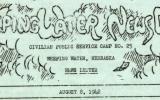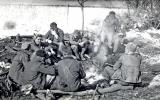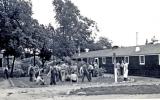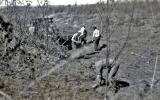CPS Unit Number 025-01
Camp: 25
Unit ID: 1
Operating agency: MCC
Opened: 4 1942
Closed: 4 1943
Workers
Total number of workers who worked in this camp: 203
-
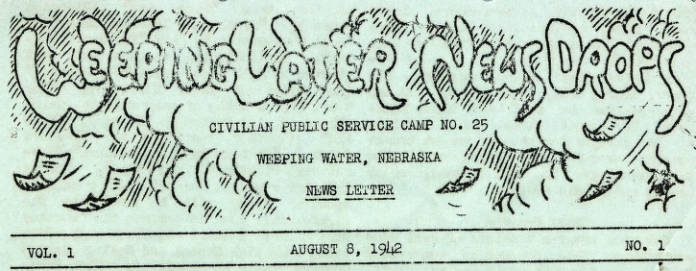 CPS Camp No. 25, Weeping Water News DropsWeeping Water News Drops was a newsletter published by the men at Camp 25 from August 8, 1942 through April 1943.Digital Image from American Friends Service Committee: Civilian Public Service Records (DG002), Swarthmore College Peace Collection, Swarthmore, Pennsylvania
CPS Camp No. 25, Weeping Water News DropsWeeping Water News Drops was a newsletter published by the men at Camp 25 from August 8, 1942 through April 1943.Digital Image from American Friends Service Committee: Civilian Public Service Records (DG002), Swarthmore College Peace Collection, Swarthmore, Pennsylvania -
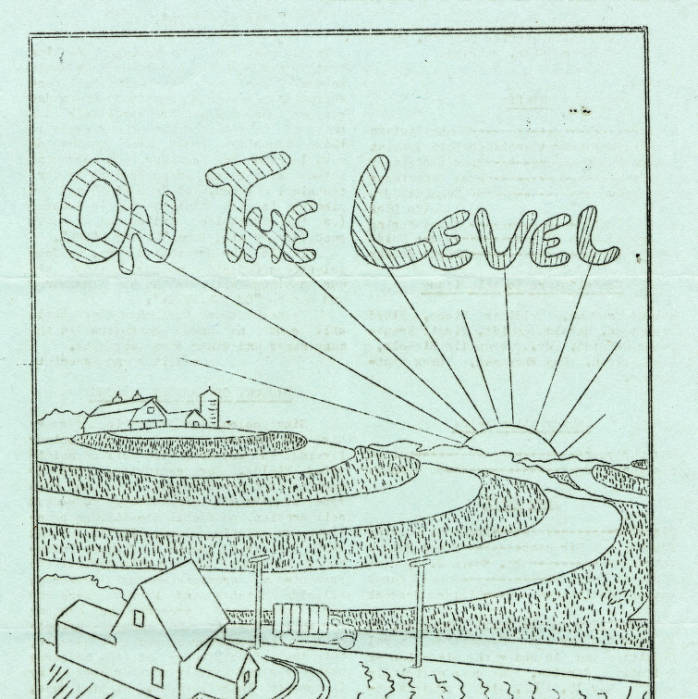 CPS Camp No. 25, On The LevelOn The Level was a newsletter published by the men at Camp 25 from February to April 1943.Digital Image from American Friends Service Committee: Civilian Public Service Records (DG002), Swarthmore College Peace Collection, Swarthmore, Pennsylvania
CPS Camp No. 25, On The LevelOn The Level was a newsletter published by the men at Camp 25 from February to April 1943.Digital Image from American Friends Service Committee: Civilian Public Service Records (DG002), Swarthmore College Peace Collection, Swarthmore, Pennsylvania -
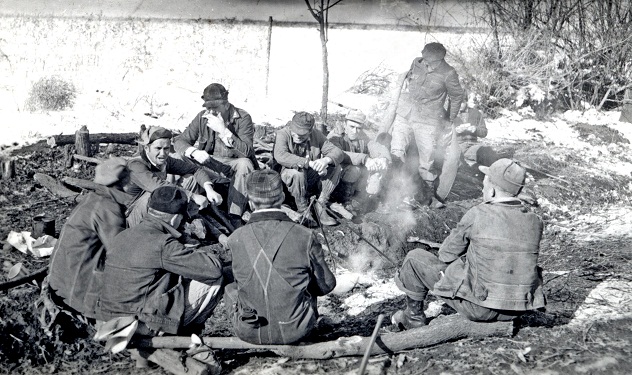 CPS Camp No. 25Men talking around an outdoor fire at Camp 25, Weeping Water, Nebraska.Digital image from American Friends Service Committee: CPS Records (DG002), Swarthmore College Peace Collection, Swarthmore, Pennsylvania
CPS Camp No. 25Men talking around an outdoor fire at Camp 25, Weeping Water, Nebraska.Digital image from American Friends Service Committee: CPS Records (DG002), Swarthmore College Peace Collection, Swarthmore, Pennsylvania -
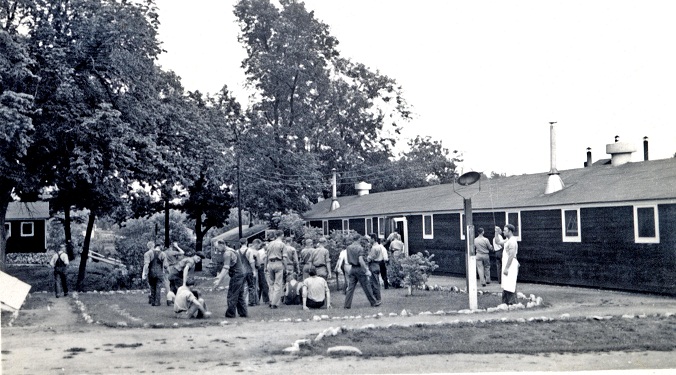 CPS Camp No. 25Coming in for mealtime at Camp 25, Weeping Water, Nebraska.Digital image from American Friends Service Committee: CPS Records (DG002), Swarthmore College Peace Collection, Swarthmore, Pennsylvania
CPS Camp No. 25Coming in for mealtime at Camp 25, Weeping Water, Nebraska.Digital image from American Friends Service Committee: CPS Records (DG002), Swarthmore College Peace Collection, Swarthmore, Pennsylvania -
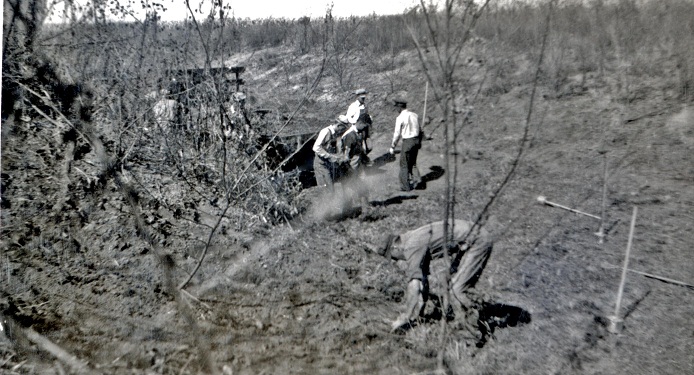 CPS Camp No. 25Daily work at Camp 25, Weeping Water, Nebraska.Digital image from American Friends Service Committee: CPS Records (DG002), Swarthmore College Peace Collection, Swarthmore, Pennsylvania
CPS Camp No. 25Daily work at Camp 25, Weeping Water, Nebraska.Digital image from American Friends Service Committee: CPS Records (DG002), Swarthmore College Peace Collection, Swarthmore, Pennsylvania
CPS Camp No. 25, a Soil Conservation Service base camp located on the southeast edge of Weeping Water, Nebraska and operated by the Mennonite Central Committee, opened in April 1942 and closed in April 1943. Men fenced pastures, planted trees, tiled drainage ditches, surveyed for contour farming and performed related duties.
CPS Camp No. 25, a Soil Conservation Service base camp, was located on the southeast edge of Weeping Water, Nebraska, found thirty-five miles south of Omaha and thirty-five miles east of Lincoln.
Director: Erwin Goering
Dietician: Selma Rupp
Matron: Verna Mae Kauffman Goering
As in other Mennonite CPS camps, most of the men reported Mennonite denominational affiliations when entering CPS.
The majority entered from farming and other agricultural occupations. On average, men in the Mennonite camps had completed 10.45 years of education, with twenty-two percent having attended some college, graduated or takes graduate work. (Sibley and Jacob 171-72)
Men fenced pastures, planted trees, tiled drainage ditches, surveyed for contour farming and performed related duties.
During this period a tornado devastated an area eight miles from the camp and the men gave emergency aid in clearing debris.
Roland H. Kaufman, drafted from his teaching position in Olsburg, Kansas reported to the camp in June 1942.
My engineering courses at KSU qualified me for some technical work as surveyor, use of transits, making field maps of waterways, contour lines and terraces. For several months I was working at the State Conservation Office at Lincoln, Nebraska. I was granted a government truck for transportation from camp to the office at Lincoln. (The Eden Peace Witness: Personal Accounts pp. 118-120)
With the men in camp sharing religious and other experiences, and with camp leaders working to keep unity and harmony, camp life tended to be relatively calm in comparison with camps of far greater diversity among the CPS men. In general Mennonite men tended to respect authority.
At Weeping Water, the men liked to hook rugs. This particular form of recreational activity was popular in many camps.
The men published a camp paper Weeping Water News Drops from August 8, 1942 through April 1943. They also published On the Level during February – April in 1943.
For more information on soil conservation camps see Melvin Gingerich, Service for Peace: A History of Mennonite Civilian Public Service. Akron, PA: Mennonite Central Committee printed by Herald Press, Scottdale, PA 1949, Chapter X pp. 108-124.
For general information on CPS camps see Albert N. Keim, The CPS Story: An Illustrated History of Civilian Public Service. Intercourse, PA: Good Books 1990.
See The Eden Peace Witness: A Collection of Personal Accounts edited by Jeffrey W. Koller. Moundridge, KS: Jebeko Publishing, 2004.
See also Mulford Q. Sibley and Philip E. Jacob, Conscription of Conscience: The American State and the Conscientious Objector, 1940-1947. Ithaca, NY: Cornell University Press, 1952.
Swarthmore College Peace Collection, Camp periodicals database.
